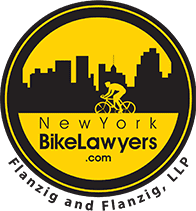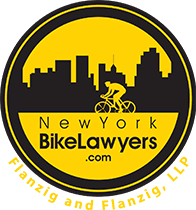Many residents throughout New York have joined the ranks of electric bike riders, following a nationwide trend celebrating the convenience of battery-powered bikes. E-bikes, as they are known colloquially, are used for everything from running errands and going on dates to commuting to work. With the use of e-bikes growing in suburbs across the New York City Metro area, the novelty of electronic bikes has given way to important questions about legislation and safety. Regulation confusion and concerns have highlighted disconnects between retailers, consumers, and law enforcement. Daniel Flanzig, an attorney from New York and advocacy chair at the New York Bicycling Coalition, explains that the legal regulations surrounding e-bikes are complex, leaving too much room for interpretation. Additionally, Flanzig has been lending his expertise to local law enforcement by holding classes to explain current legislation with hopes of keeping roadways safe for e-bike riders and the larger community. Brian Paladino, Lynbrook Police Chief for over two decades, noted that this is the first time he's seen registration exemptions for devices with a motor.
E-bike Regulations Impacting Suburbs Across the New York City Metro Area
E-bikes have been legislated in 39 states, including New York. There are three classes of e-bikes - Class 1 and 2 are allowed on Long Island with a maximum speed of 20 mph, while the faster Class 3 bikes can reach 25 mph but are only allowed in New York City. Some towns in the area have even stricter regulations, like Nassau County, which prohibits E-bikes in county parks, Long Beach bans them on the boardwalk, and Patchogue Mayor Pontieri voiced concern over riders weaving in and out of traffic beyond the 25-mph speed limit. Electric bikes are not allowed on mountain bike trails managed by New York State Parks and the Department of Environmental Conservation. Unregistered electric devices aren't permitted on sidewalks in most places in the region. Class 1 e-bikes without throttles are preferred as they weigh less than Class 2 and more closely resemble a standard bike. Since June of last year, all e-bikes must have a manufacturer's label with the bike's classification. Children under 16 are not allowed to ride on E-bikes.
Varying E-bike Regulations are a Cause of Concern, Confusion, and Frustration
There is a lack of public understanding about the rules around e-bikes due to the significant policy changes made two years ago not being accompanied by an effective education campaign. Organizations like PeopleforBikes have taken steps in 2020 to raise awareness and knowledge on this topic. E-bikes face varying rules set by state and local law. For instance, in Long Island, e-bikes can't go faster than 20 mph and are only allowed on streets with a speed limit of 30 mph. Consumers can find it hard to understand the e-bike rules as state policy changed two years ago before public awareness campaigns. PeopleforBikes is working to educate more consumers this year about what constitutes an electric bike. Other volunteer groups, like CLIMB, which creates local mountain bike trails, believe a lack of clear rules is the cause of many problems. There have been instances of verbal altercations occurring between traditional bike riders and electric cyclists. With constantly changing legislation, consumers should research e-bikes before committing and get comfortable with a standard bike first. While many consumers often inquire to retailers about where they can ride an e-bike without violating local laws, provided information is not always reliable. Advocates and retailers urge people to do their research before investing in an e-bike, as well as become familiar with standard biking before turning to an electric mode. Additionally, electric devices such as minibikes, dirt bikes, golf carts, and go-karts are mostly prohibited under state law, but e-scooters on streets and highways with 30 mph speed limits are exceptions.
Other Safety Concerns Facing E-Bike Users
Roadway safety is a serious issue, but overall safety concerns loom large in other areas. Despite the continued growth and rising popularity of e-bikes, regulation of online purchases is an area of concern. There are serious risks from faulty lithium-ion battery fires, which are known to cause fire-related death and injury. Many retailers and advocates suggest avoiding off-market and discount batteries. Additionally, using a different battery than the manufacturer-approved replacement for an e-bike is discouraged. To ensure safety, shop owners recommend only purchasing batteries from reputable brands and carrying spare parts to help with repairs. As the industry continues to grow, it is likely that clearer rules and regulations will be needed to ensure public safety.
If you've been injured in an e-bike accident through no fault of your own, contact our firm today at (888) 290-5994. Our experienced attorneys can review the details of your case and help review your options.


